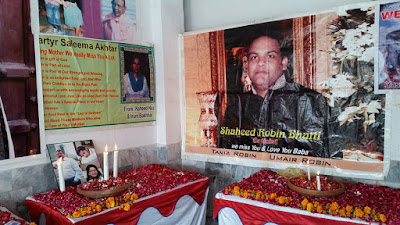Lessons from the Fathers
On Fasting
IF THOU, O man, dost not forgive everyone who has sinned
against thee, then do not trouble thyself with fasting. If thou dost not
forgive the debt of thy brother, with whom thou art angry for some reason, then
thou dost fast in vain God will not accept thee. Fasting will not help thee,
until thou wilt become accomplished in love and in the hope of faith. Whoever
fasts and becomes angry, and harbors enmity in his heart, such a one hates God
and salvation is far from him. Venerable
Ephraim the Syrian.
It is necessary most of all for one who is fasting to curb
anger, to accustom himself to meekness and condescension, to have a contrite
heart, to repulse impure thoughts and desires, to examine his conscience, to
put his mind to the test and to verify what good has been done by us in this or
any other week, and which deficiency we have corrected in ourself in the
present week. This is true fasting. Saint
John Chrysostom.
An excellent faster is he who restrains himself from every
impurity, who imposes abstinence on his tongue and restrains it from idle talk,
foul language, slander, condemnation, flattery and all manner of evilspeaking,
who abstains from anger, rage, malice and vengeance and withdraws from every
evil. Saint Tichon of Zadonsk.
Seest thou what fasting does: it heals illnesses, drives out
demons, removes wicked thoughts, and makes the heart pure. If someone has even
been seized by an impure spirit, let him know that this kind, according to the
word of the Lord, "goeth not out but
by prayer and fasting" (Matthew 17:21). Saint Athanasius the Great.
By fasting it is possible both to be delivered from future
evils and to enjoy the good things to come. We fell into disease through sin;
let us receive healing through repentance, which is not fruitful without
fasting. Saint Basil the Great.
The strictness of the Quadragesima [the Forty Days] mortifies the passions, extinguishes anger and rage, cools and calms every agitation springing up from gluttony. And just as, in the summer, when the burning heat of the sun spreads over the earth, the northern wind renders a benefaction to those who are scorched by dispersing the sultriness with a tender coolness, so fasting also provides the same, by driving out of bodies the burning which is the result of overeating. Saint Asterius of Amasia.
As bodily food fattens the body, so fasting strengthens the
soul; imparting it an easy flight, it makes it able to ascend on high, to
contemplate lofty things, and to put the heavenly higher than the pleasant and
pleasurable things of life. Saint John
Chrysostom.
Fasts do not shorten a man's life, on the contrary. Venerable Symeon the Stylite lived for 103 years, Saint Cyril the Anchorite lived 108 years, Saint Alypius the Stylite 118, Venerable John the Silent 104 years, Anthony and Theodosius the Great for 105 years, Venerable Paul of Thebes 113, Paul of Komel 112, Venerable Macarius of Alexandria 100, Venerable Sergius of Radonezh 78, Venerable Cyril Belozersky 90, Macarius Zheltovodsky 95.
Orthodox Church of Pakistan
www.ocpak.com
by: Fr. Cyril Amer




















